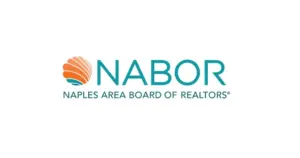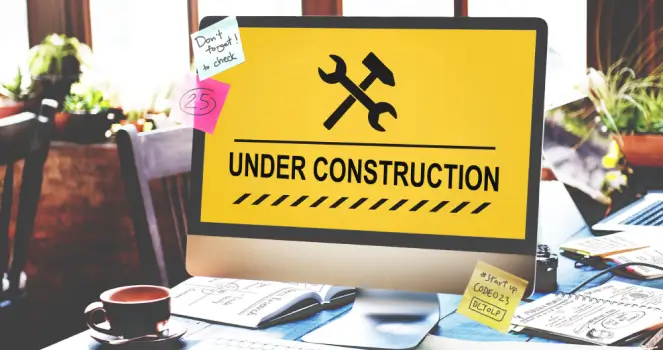The phone rings at 9 PM. A potential seller found your number online and wants to know if you can help them list their home. Where did they find you? Your personal website. While your competition relies on brokerage pages and third-party portals, you capture leads around the clock through your digital storefront.
Personal website development and maintenance for real estate agents isn’t just about having an online presence anymore: it’s about building a lead-generating machine that works when you’re sleeping, showing homes, or closing deals.
Why Your Personal Website Outperforms Everything Else
Breaking Free from Brokerage Limitations
Your brokerage website might look professional, but here’s the reality: you’re just one face among dozens on a crowded page. Clients scroll past generic agent profiles that all look identical. Your photo sits next to three other agents, your bio follows the same template, and your contact button leads to a shared form.
A personal website flips this script. When someone lands on your site, there’s no competition for their attention. Every page showcases your expertise, personality, and real estate approach. You decide what visitors see first, how they navigate your content, and what action they take next.
The Trust Factor
According to NAR data, two-thirds of REALTORS® now maintain personal websites. That means having your own site has become the baseline expectation for professionalism. Clients expect to research you online before making contact; a missing or poor website sends the wrong signal. A well-maintained personal website, on the other hand, can build trust and confidence in your potential clients.
Think about your own behavior as a consumer. When someone refers a service provider, don’t you immediately look them up online? Your potential clients do the same thing. They check you out before they call, and your website is often their first real impression of your business.
Lead Generation That Never Sleeps
Here’s where personal websites really shine: they work 24/7. While you’re at dinner with family, someone across town might browse your property listings, read your neighborhood guides, or fill out a contact form. That lead comes directly to you not through a portal where you’re competing with other agents. It’s like having a virtual assistant that never sleeps, always ready to capture potential leads for you.
The numbers back this up. Agents with well-optimized personal websites report that digital marketing can drive 300% more traffic than agents relying solely on third-party platforms.
Core Components That Convert Visitors to Clients
The About Page That Actually Connects
Your About page typically gets more traffic than any other page on your site. Yet most agents treat it like an afterthought. This page should tell your story in a way that makes potential clients think, “This is the agent I want to work with.”
Don’t write another “I’m passionate about helping families find their dream homes” bio. Clients read dozens of those every day. Instead, tell them why you chose real estate over your previous career in teaching, or how growing up in three different states taught you what makes a neighborhood feel like home.
Share the details that matter. If you live two blocks from your recommended elementary school, mention it. If you grab coffee at the same local spot where you’ve closed deals with four clients, that’s worth including. These specifics help potential clients picture working with someone who truly knows the area, not just someone who sells houses there.
IDX Integration: Your Secret Weapon
IDX (Internet Data Exchange) integration is arguably the most powerful feature you can add to your site. This feature lets visitors search MLS listings directly on your website instead of heading to Zillow or Realtor.com. It keeps potential clients on your site longer, increasing the chances of lead generation, and provides a more seamless user experience, enhancing your site’s appeal.
When someone searches for homes on your site, they’re more likely to contact you about what they find. Many IDX systems also capture visitor information when users save searches or request details. turning anonymous browsers into qualified leads.
The key is making your property search feel native to your site, unlike a clunky add-on. Look for IDX providers that offer mobile-responsive search tools with advanced filtering options.
Community Pages That Showcase Local Expertise
Generic property descriptions won’t set you apart. But detailed neighborhood pages will. Create dedicated pages for each area you serve, including:
- Recent sales data and market trends
- School district information and ratings
- Local amenities, restaurants, and attractions
- Transportation options and commute times
These pages serve double duty. They help potential clients understand different neighborhoods while positioning you as the local expert. Search engines love this hyperlocal content too, often ranking these pages well for searches like “homes in [neighborhood]” or “[city] real estate market.”
Social Proof That Sells
Client testimonials and your portfolio of recent sales provide immediate credibility. But don’t just copy and paste generic reviews. Ask satisfied clients for specific feedback about your service, market knowledge, or how you handled challenges during their transaction.
Display these testimonials prominently, and don’t forget to showcase your recent sales (with client permission). A portfolio of successful transactions tells visitors you’re actively working and closing deals.
Platform Selection: Finding Your Perfect Match
WordPress: Maximum Control and Flexibility
WordPress powers more websites than any other platform, and for good reason. The self-hosted version (WordPress.org) gives you complete control over design, functionality, and content. You can choose from thousands of real estate themes and add powerful plugins for IDX integration, lead capture, and SEO optimization.
The trade-off? WordPress requires more technical knowledge and ongoing maintenance. You’ll need web hosting, regular updates, DIY skills, or a developer relationship. But for agents who want unlimited customization options, WordPress delivers.
All-in-One Builders: Simplicity Without Sacrifice
Platforms like Wix and Squarespace offer drag-and-drop website building with built-in real estate templates. These services include hosting, security, and basic SEO tools, making them attractive for agents who want to focus on selling rather than web development.
Wix provides excellent real estate templates and supports IDX integration through third-party apps. Squarespace excels in design aesthetics and includes useful features like online appointment scheduling. Both platforms handle the technical details while you focus on content and lead generation.
Specialized Real Estate Solutions
Companies like Placester, Real Geeks, AgentFire, and Luxury Presence focus exclusively on real estate websites. These platforms typically include built-in IDX search, CRM integration, lead capture tools, and automated marketing features.
The benefits include industry-specific features and support teams that understand real estate marketing. The downside is typically higher monthly costs and less design flexibility than general website builders.
Development Strategy: Building for Long-term Success
Mobile-First Design Philosophy
With over 75% of real estate searches happening on mobile devices, your website must work flawlessly on smartphones and tablets. This means more than just responsive design: it requires thinking mobile-first during development. A mobile-first design philosophy ensures that your website is optimized for the most common way potential clients will access it, enhancing their user experience and increasing the likelihood of lead generation.
Test your site regularly on different devices. Can visitors easily navigate your property search on a phone? Are contact forms simple to complete on a small screen? Does your site load quickly on cellular connections?
Speed Optimization From Day One
Website speed directly impacts user experience and search engine rankings. When page load times go from one second to three seconds, bounce rates increase by 30%. Potential clients leave before they see what you offer.
Optimize images before uploading them to your site. Choose a hosting provider known for speed. Avoid adding too many plugins or widgets that slow down loading times. Many website builders handle speed optimization automatically, but you should still monitor performance using tools like Google PageSpeed Insights.
Professional Domain and Email Setup
Your domain name becomes part of your brand identity. Choose something memorable that includes your name or target market, like JohnSmithHomes.com or DowntownCondoExpert.com. Avoid hyphens, numbers, or overly complex spellings.
Set up a professional email using your domain ([email protected]) rather than a generic Gmail address. This small detail significantly impacts how professional you appear to potential clients.
Maintenance Mastery: Keeping Your Investment Working
Content Strategy That Scales
Your website needs fresh content to maintain search engine visibility and visitor interest. Develop a content calendar that includes:
- Monthly market updates for your service areas
- Seasonal home maintenance tips
- New listing announcements and sold property features
- Community event coverage and local business spotlights
Don’t try to post daily. Consistent monthly updates work better than sporadic bursts of activity followed by months of silence.
Security and Technical Upkeep
Website security protects your business and your clients’ information. Start with SSL encryption (the little padlock in the browser) most hosting providers include this for free. Keep your website software updated, especially if you use WordPress plugins.
Use strong passwords for all admin accounts and consider two-factor authentication for extra security. Regular backups protect against data loss, and most hosting providers offer automatic backup services.
DIY Updates vs. Professional Help
Learn basic content management skills to update listings, add blog posts, and make minor changes without waiting for outside help. Most modern website builders make these tasks straightforward.
However, know your limits. Significant design changes, technical troubleshooting, or SEO optimization might require professional help. The key is handling day-to-day updates while having resources for bigger projects.
Local SEO Optimization
Search engine optimization helps potential clients find your website when they search for real estate services in your area. Focus on local SEO strategies:
- Include your service areas in page titles and content naturally
- Claim and optimize your Google Business Profile
- Create location-specific landing pages for different neighborhoods
- Encourage satisfied clients to leave online reviews
Remember that SEO is a long-term strategy. Consistent effort over months and years builds better results than quick fixes or shortcuts.
ROI Reality: Measuring What Matters
Lead Generation Metrics
Track where your website leads come from and how they convert to clients. Most website analytics can tell you which pages generate the most contact form submissions, how long visitors spend on your site, and which content keeps them engaged.
Pay attention to the quality of leads, not just quantity. A website that generates five highly qualified monthly leads often outperforms one that generates twenty tire-kickers.
Business Impact Beyond Leads
Personal websites support your business in harder-to-measure but equally valuable ways. Clients often research agents online before contacting, so your website influences their decision even if they call you directly.
Listing presentations becomes easier when sellers can review your marketing materials, recent sales, and client testimonials beforehand. They arrive already familiar with your approach and credentials.
Cost-Effectiveness Compared to Alternatives
A well-maintained personal website typically costs $50-300 monthly, depending on your platform choice and features. Compare that to buying leads from portals, costing $100-500 per qualified lead.
Your website becomes a business asset that works continuously. Unlike advertising that stops when you stop paying, your website generates leads and supports your brand 24/7.
Your Next Steps
Personal website development and maintenance for real estate agents requires planning, but the investment pays dividends for years. Start by choosing a platform that matches your technical comfort level and budget. Focus on getting the essential features working well before adding advanced functionality.
Remember that your website is never truly “finished.” It should grow and improve as your business does. Start simple, measure what works, and gradually add features supporting your goals.
The agents who invest time building and maintaining professional websites consistently outperform those relying solely on brokerage pages or third-party portals. In a business where personal relationships matter, your website often provides the first impression that leads to everything else.
Ready to get started? Research the platforms mentioned in this guide and identify which features matter most for your target market. Your future clients are searching online right now. Make sure they can find you.
Table of Contents







